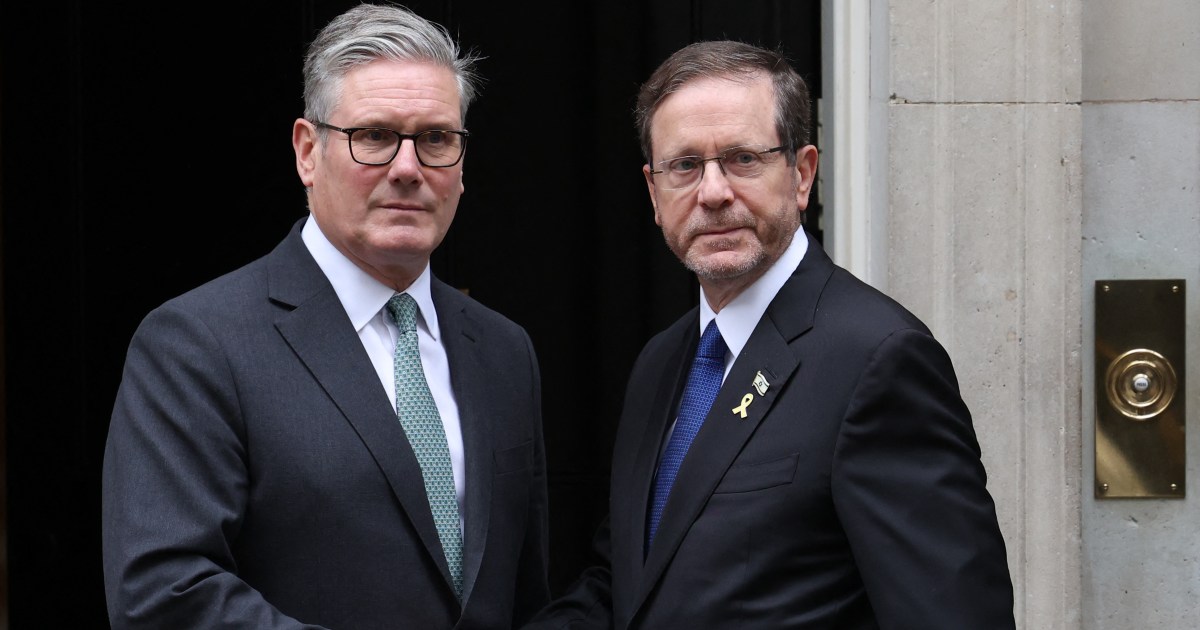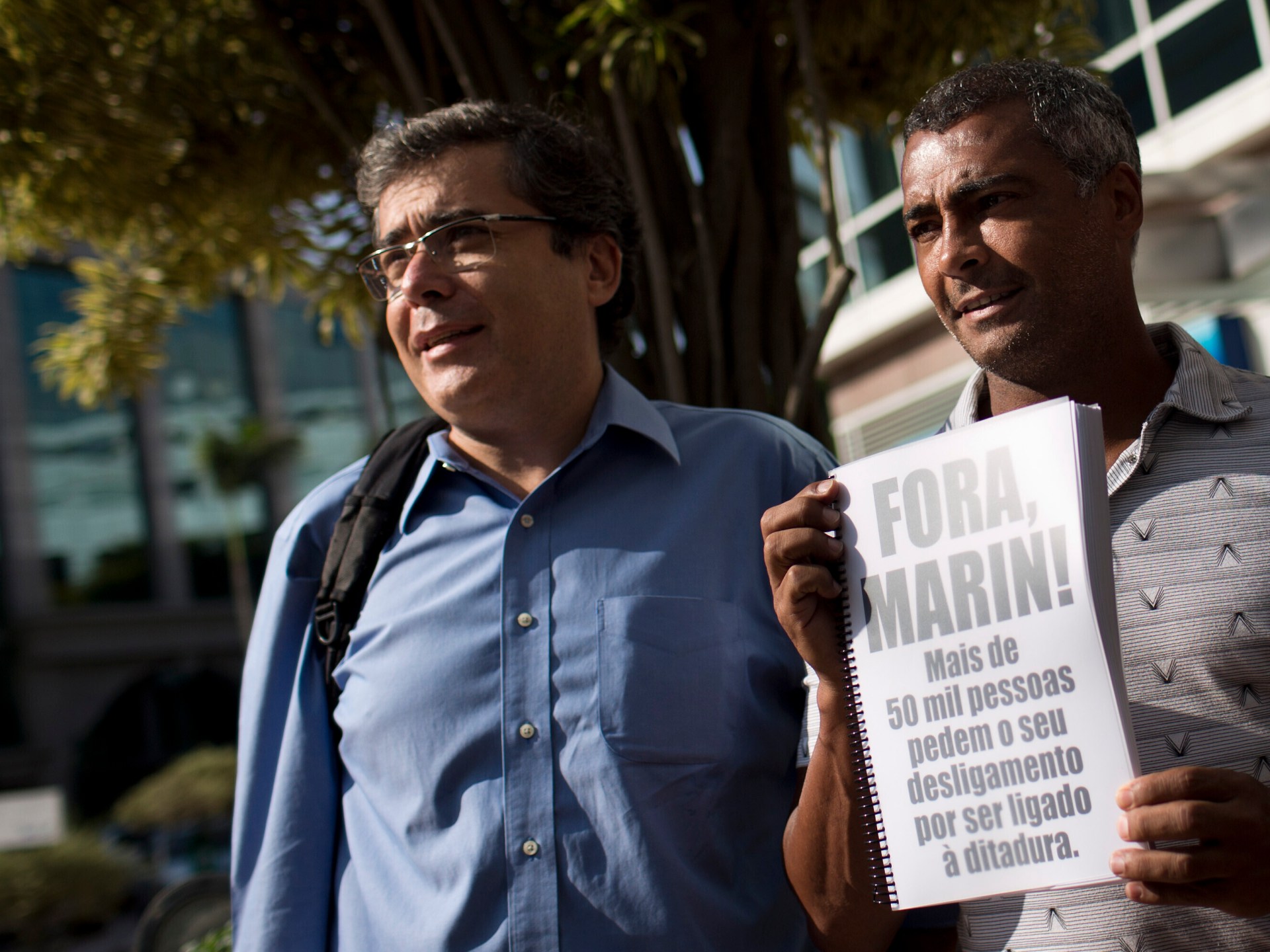Israel’s President Herzog said ‘argued out of respect’ with British PM | Israel-Palestine conflict News
Downing Street later stressed that ‘the UK and Israel are longstanding allies’ despite their differences.
Published On 11 Sep 2025
British Prime Minister Keir Starmer has criticised Israel’s “man-made famine” in Gaza following a controversial meeting with Israeli President Isaac Herzog in London.
“They must stop the man-made famine from worsening further by letting aid in and halting their offensive operations,” a Downing Street spokesperson said following the meeting on Wednesday.
Recommended Stories
list of 4 itemsend of list
Starmer “implored Israel to change course” in Gaza, the spokesperson said.
The rare rebuke marks one of Starmer’s strongest criticisms of Israel since taking office in July 2024. It also comes as aid groups warn that hundreds of thousands of Palestinians in Gaza face catastrophic hunger after nearly two years of bombardment and blockade.
Herzog’s visit to London drew widespread criticism in the United Kingdom, with thousands demonstrating outside Downing Street for a second consecutive day, according to the Palestine Solidarity Campaign.
Protesters also gathered at the London-based think tank Chatham House, banging pots and pans as Herzog delivered a speech.
“There’s a genocide happening and the president of that country is in our country and being welcomed here, when nobody is happy about it,” a protester told Al Jazeera.
“This is not diplomacy,” said another protester.
“You are aiding and abetting a genocide – and this man is not welcome in our country.”
The meeting between Herzog and Starmer came a day after Israel launched an air strike on Qatar, a close ally of the United States and the UK, that targeted a Hamas leadership delegation.
The Downing Street spokesperson said Starmer told Herzog the strike on Doha was “unacceptable” and condemned it as “a flagrant violation of a key partner’s sovereignty”.
Despite the sharp words, the spokesperson added that “the UK and Israel are longstanding allies”.
Speaking after his meeting with Starmer, Herzog confirmed the two leaders had “argued out of respect”.
“Things were said that were tough and strong,” Herzog said, adding, “Clearly, we can argue, because when allies meet, they can argue. We are both democracies.”
Herzog also said that he had invited the UK to send “a fact-finding mission” to Israel “to study the situation in Gaza on the humanitarian level”.
Herzog previously said publicly that the “entire [Palestinian] nation” was responsible for the October 7 attacks on Israel, and two months later, he was witnessed personally signing artillery shells due to be fired into Gaza.
In parliament earlier on Wednesday, Scottish National Party leader Stephen Flynn asked: “What does it say of this prime minister that he will harbour this man whilst children starve?”
Starmer defended his decision to meet Herzog, rejecting calls to cut diplomatic ties. “I will not give up on diplomacy,” he said.
“That is the politics of students.”

